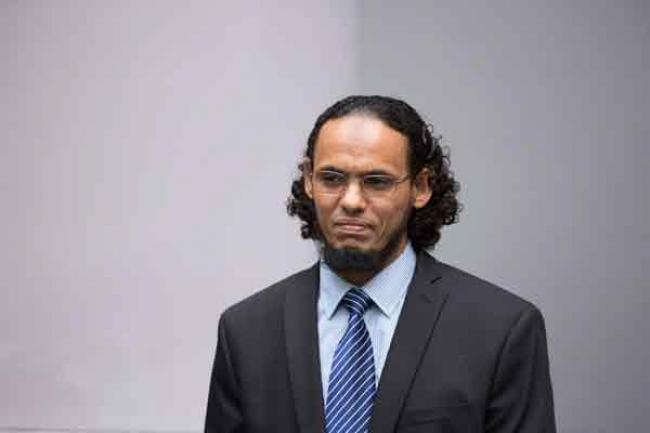Just Earth News 23 Aug 2016, 03:14 am Print

ICC-CPI
Ahmad Al Faqi Al Mahdi admitted guilt to the war crime consisting in the destruction of historical and religious monuments in Timbuktu, between around 30 June 2012 and 11 July 2012, the ICC said in a press release, which noted that “this is the first international trial focusing on the destruction of historical and religious monuments, and the first ICC case where the defendant made an admission of guilt.”
According to the release, the trial in The Hague, Netherlands, started with the reading of an extract of the confirmed charge against the accused, and the presiding judge asked him to confirm that he understood the charge. Al Mahdi admitted guilt to the charge.
In her presentation, ICC Prosecutor Fatou Bensouda said that the destroyed buildings of immeasurable value, notably the mausoleums of Muslim saints, were a major part of the historic heritage of the ancient city of Timbuktu.
“They were also more generally a part of the heritage of Mali, of Africa and of the world. All, except one, were inscribed on the World Heritage List,” she said.
“These buildings were deliberately destroyed by Al Mahdi and his co-perpetrators before the very eyes of the people of Timbuktu, who looked on powerlessly,” she continued. Al Mahdi, a member of Ansar Dine, was directly involved in the entities established by the armed groups Al-Qaeda in the Islamic Maghreb (AQIM) and Ansar Dine during the occupation of Timbuktu in 2012, the Prosecutor said.
“On Monday’s trial is indeed historic,” she stressed, noting that “it is all the more historic in view of the destructive rage that marks our times, in which humanity’s common heritage is subject to repeated and planned ravages by individuals and groups whose goal is to eradicate any representation of a world that differs from theirs by eliminating the physical manifestations that are at the heart of communities.”
Meanwhile, UN Secretary-General Ban Ki-moon welcomed the landmark case and commended the Court for bringing the significant issue to the forefront of efforts to ensure international justice and accountability, his spokesperson said in a statement.
“It draws our attention to an increasingly worrying trend of deliberate destruction of cultural heritage in situations of armed conflict,” said the statement, which also noted that “such attacks represent a callous assault on the dignity and identity of entire populations and their religious and historical roots.”
The Secretary-General “strongly condemns” all such acts, and call on all concerned to ensure perpetrators are held accountable, the statement said.
The judges will pronounce a decision and a possible sentence after further proceedings.
- Pakistan: Police recover two bullet-ridden bodies from Balochistan
- IDF strikes Hezbollah targets in Lebanon after projectile fire toward Northern Israel; 31 killed
- Pakistan: Armed gunmen kidnap 14 workers during coordinated raids in Balochistan
- ISIS-inspired plot foiled in UK: Two men get life sentences for targeting Jewish community
- India rejects allegations, urges Pakistan to tackle its ‘home-grown ills’





-1763561110.jpg)
